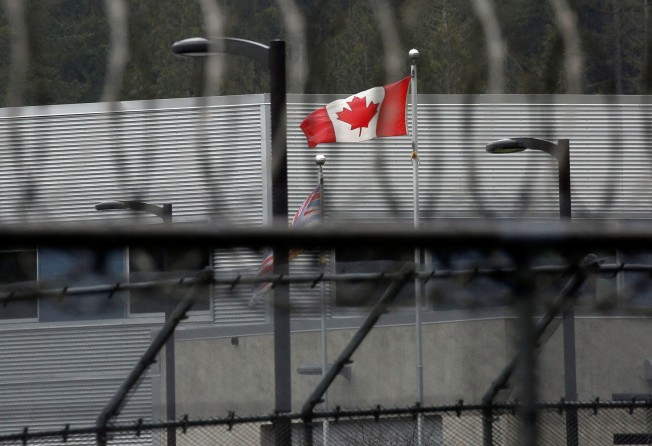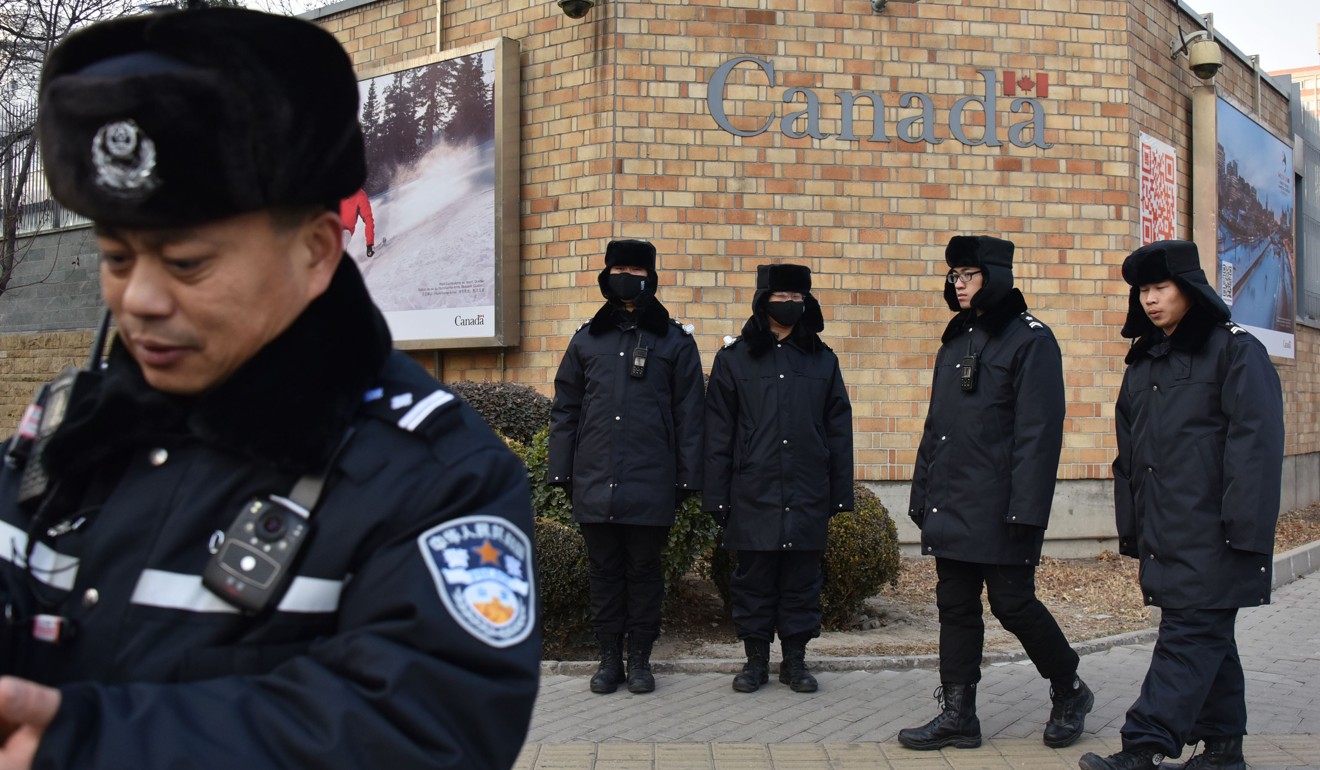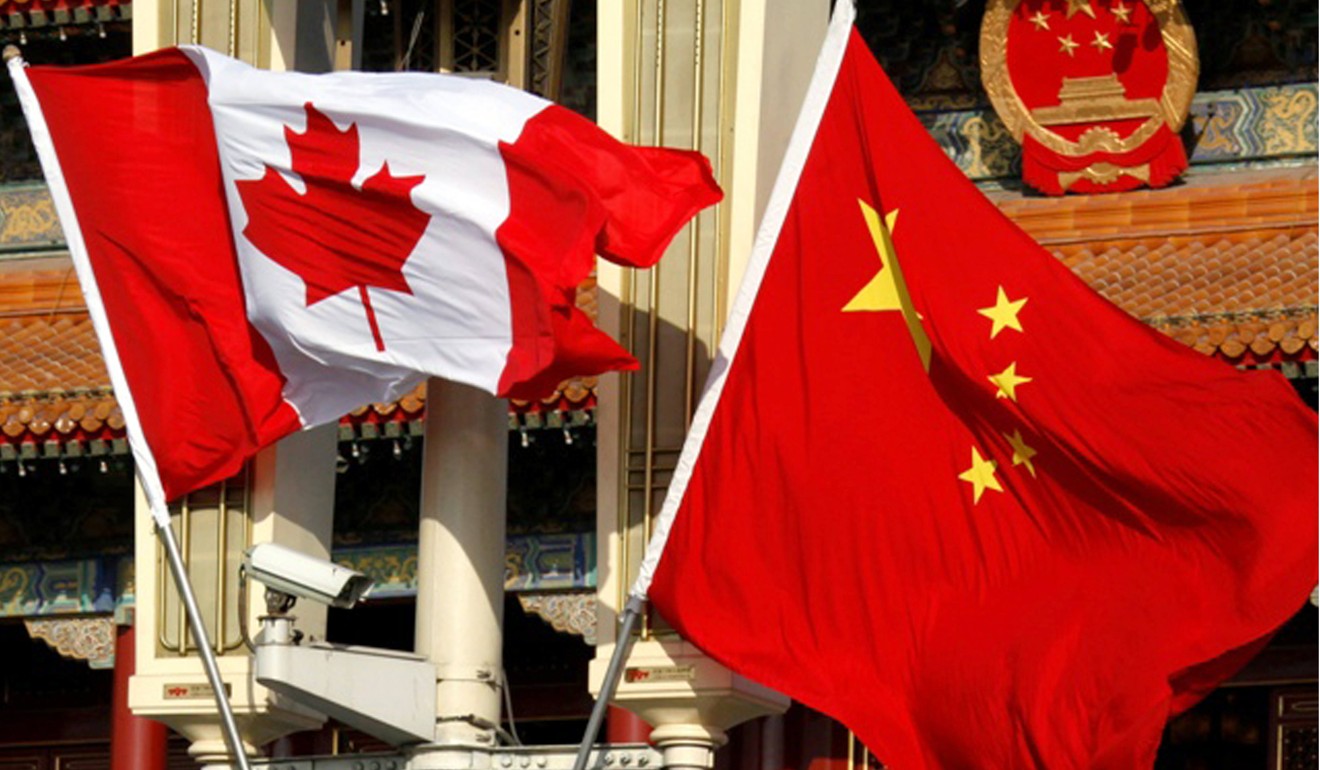China urged to exercise restraint in response to Canada’s part in arrest of Sabrina Meng Wanzhou
- Analysts say that while Beijing has the muscle to cause Canada economic and diplomatic damage, retaliation may not be the best move for China in long run

China is expected to punish Canada for the arrest of Huawei chief financial officer Sabrina Meng Wanzhou by economic and diplomatic means, but must beware of becoming entangled in a war of words, experts said.
The pending extradition of Meng from Canada has heightened tensions between China and the US, prompting warnings of “severe consequences” from Beijing.
Ottawa maintains that the extradition of Huawei’s CFO is an isolated legal matter, while Beijing has called for her release.
Jim Carr, Canada’s Minister of International Trade Diversification, said ties between China and Canada are strong enough to withstand the arrest of Meng, and Ottawa’s decision to comply with a US request was based on the rule of law alone.
“In sophisticated trading relationships, there will be difficult moments, but we’re confident that the relationship is so important, and at so many levels, that it will continue,” Carr said.
“We have a treaty. There’s been no political involvement on this file, and the justice system is doing what it’s supposed to do.”
However, Phil Calvert, former Canadian ambassador and senior research fellow at the Centre for Asia-Pacific Initiatives at the University of Victoria in British Columbia, said China will not regard Meng’s processing an isolated incident, and is likely retaliate.
“China still has this ‘reward and punishment’ perspective on how to engage in diplomacy with countries that are less powerful than them,” he said. “We could see the cancellation of high level visits, or bilateral dialogues, and discussions of the free trade area could be pushed off as well.”
Last week, Chinese officials cancelled a closed-door meeting with Canadian parliamentarians, according to the Canadian Press.
US-China tensions have weighed on China and Canada’s attempts to foster closer trade relations, said Dan Ciuriak, Distinguished Fellow at the Asia-Pacific Foundation of Canada. “The deterioration in relations between the United States and China compromises Canada’s ability to pursue a free trade agreement with China.
“As the US escalates the trade war into what threatens to be a new cold war, the Meng incident being one such escalation, Canada has too little left in its tank to pursue an FTA with China,” he said.

Canada and China have yet to enter into official talks, but China’s ambassador said in October he hoped the two nations could make progress on an agreement in the face of rising tensions with the US.
China is the third largest export market for Canada’s oil. In 2016, the nations pledged to doubling two-way trade by 2025. Two-way merchandise trade reached C$94.5 billion (US$70.5 billion) in value in 2017.
Meng’s arrest may spill over into to areas such as trade, said Ruan Zongze, a senior fellow of the China Institute for International Studies in Beijing, depending on Canada’s response to Beijing’s demands for her release.
“The ball is in Canada’s court,” said Ruan. “China has already been very clear, so there should be no illusions.” Ruan added that “I hope this is an isolated incident, but in my opinion, it is hard to guarantee that it will not influence other aspects of the China-Canada relationship.”
The possibility that Canada may comply with China’s call to directly release Meng is small, said Shi Yinhong, director of Renmin University’s Centre for American Studies and an adviser to the State Council.
“This would produce a strong reaction within Canada, and by the United States government, and would also go against all of the so called ‘legalist’ arguments Canada has made about its own legal system.”
Calvert said that China could inflict a variety of short-term consequences on Canada’s trade relationship, and that Beijing has more capacity than other world capitals like Ottawa to exert influence over a trade partner.

“The Canadian government cannot go to a Canadian company and say ‘do not buy this stuff from China’, unless there is a legal reason not to do so, whereas the Chinese government still has the authority to tell its companies to go somewhere else,” said Calvert.
Alan Alexandroff, director of the Global Summitry Project at the Munk School of Global Affairs and Public Policy at the University of Toronto, said China needs to exercise restraint in its reactions.
“Threatening expressions, let alone behaviour, towards Canada will not, in my opinion, improve the situation,” he said.